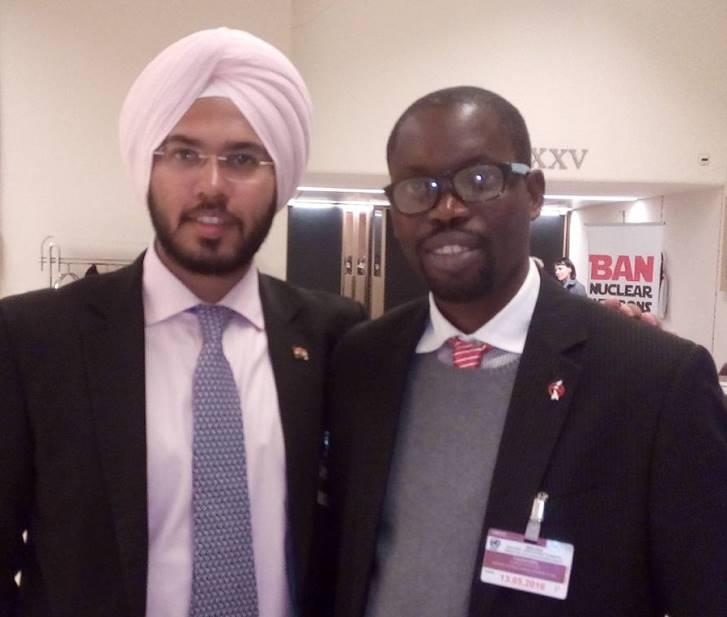Africa space is a religious space, a combination of 54 states from North to East, West to South. Differences in culture and religious persuasion exist, but a unity of purpose is always on peace and development. What is not negotiable is the strong believe in God, the piousness of Africans. That's why we boldly and unanimously walk on the common ground to say this weapon of mass destruction remaining unbanned is totally unacceptable.
“The 10th Assembly of the World Council of Churches met in a region where nuclear explosions, accidents and threats have taken a heavy toll. Northeast Asia is the only place on earth where nuclear weapons have been used in warfare. During the Cold War more than 1,000 nuclear bombs were tested in adjoining areas of the Pacific and Asia. Today all states in the region either possess nuclear weapons or depend on the US nuclear arsenal. The 100-plus nuclear power plants in East Asia and the many more planned are signs of economic prowess but also reminders of the Fukushima tragedy. South Korea has the highest geographic concentration of nuclear power plants in the world”.
(WCC Central Committee, 2014: Statement towards a Nuclear-free World)
The journey of African Churches, states and faith-based organizations to join the near universal call for nuclear weapons abolition arises from the heavy humanitarian consequences that would arise as a result of usage. We have travelled through the first Conferences on the Humanitarian Impact of Nuclear Weapons from Oslo, to Nayarit and Vienna, noting that the destruction of the eco system, nuclear famine and overall effect will be too weighty to be handled by any response agency.
The treaty of Phalindaba, makes the entire continent of Africa a Nuclear Weapon Free Zone. This is a great success but it is not enough.
The religious family have a special responsibility to be good stewards of the entire creation, so any human action or activity that negates this should be resisted and prevented. We still grapple with the trauma of the Hibakusha, the stories from Hiroshima and Nagasaki confront us daily and appeal to our conscience to say a ban treaty is the way forward.
Africa unites behind a ban treaty! We build on strong church advocacy that started in 2013 with preparations for the Non Proliferation Treaty Review Conference and continued through this year's Open Ended Working Group (OEWG) meetings, bringing forward discussion on the abolition of nuclear weapons.
While the minority of countries that owns nuclear weapons continues to speak strongly against their abolition, at the conclusion of the OEWG meeting on Monday 13th May, the majority of countries and the civil society groups have clearly won the moral leadership.
The road to the next OEWG meeting in August is clear, the path is to demand that negotiation for a ban treaty begins in October 2016. Like other weapons of mass destruction, nuclear weapons will also be confined to the dustbin of history. Together it is possible.
As we continue in the Pilgrimage of Justice and Peace, one cannot neglect nuclear weapon abolition because this is a great moral issue of our time.






